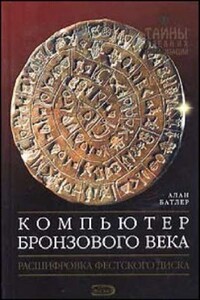Английский язык для специальных и академических целей: Международные отношения и зарубежное регионоведение. Часть 1 - [62]
Many of us feel we are living through a period of profound crisis. But perhaps democracy is more secure than at any time since the 1970s.
http://www.newstatesman.com/2014/02/notes-series-scandals
By David Runciman
6 February, 2014
British democracy is going through its worst crisis of confidence in decades. The underlying cause is economic. The recovery since the crash of 2008 has been the slowest in modern times. For Labour, the fear is that the party will continue to carry the can for allowing the mess to happen in the first place; for the coalition partners, it is that they will get blamed for the woefully unequal and piecemeal recovery. In this climate of uncertainty and distress, fringe parties and maverick voices have a golden opportunity. It's not only Nigel Farage who ends up being taken seriously — even Russell Brand gets his moment in the political sun.
The Reader
However, the primary symptoms of the malaise of British democracy are institutional. Over the past five years the standing of many of the central institutions of British public life has been undermined by scandal. The banks have forfeited public trust as a result of the corruption and incompetence that was exposed during and after the financial crisis. The reputation of parliament was gravely damaged by the expenses scandal that came to light in 2009 and has been rumbling on through the courts and the media ever since. The press saw what remained of its reputation for probity shredded by the phone-hacking scandal and subsequent Leveson inquiry.
The police have been heavily implicated in the worst examples of press behaviour. This is not only in relation to phone-hacking but dates back to the Hillsborough disaster nearly 25 years ago — in which the evidence of widespread misconduct by the South Yorkshire force drew a fulsome apology from the Prime Minister in 2012. Now the London Met is grappling with the fallout from “Plebgate”, a saga that is all the more damaging for being so absurd (the saying “It's not the crime, it's the cover-up” was never more true than in this case). The BBC is still reeling from the scandal surrounding the activities of Jimmy Savile and the exposure of ludicrously generous payoffs to executives caught up in it. This summer we discovered that the British secret services have been routinely eavesdropping on the everyday activities of ordinary British citizens, aiding and abetting the far more extensive surveillance operations being undertaken by the Americans.
The armed forces have emerged relatively unscathed from this period of purgatory for public institutions, although even they have been tarnished by revelations about past brutalities in Northern Ireland and Iraq. Perhaps it is only the monarchy whose reputation has risen in recent years, which says something about the state of British democracy. Elected politicians tiptoe around these scandals, looking for some way to ally themselves with public anger. At the same time, they are deeply wary of fuelling a backlash of disgust against the entire political establishment that would sweep them up as well.
What these institutional failings have in common is that they arose from a growing sense of impunity among small networks of elites. As British society has become more unequal it has created pockets of privilege whose inhabitants are tempted to think that the normal rules don't apply to them. In any democracy, people with power will abuse it. All public institutions follow the path of least resistance over time. The usual democratic remedy is for other public institutions to rein them in: it is the job of the press and the police to keep an eye on the politicians, just as it is the job of the politicians to keep an eye on the press and police. In Britain, it looks like the opposite was happening. A managerial political class, with extensive links to other elites in the media and business, colluded in the sort of lax scrutiny that served their joint interests. Much of this behaviour coincided with a period of unparalleled political stability and economic prosperity: the long boom that lasted from the early 1990s until 2007. But when boom turned to bust, the cosy world of the elites became a joint liability.
The Reader
The public's tolerance for managerial politics depends on the ability of the managers to keep delivering. Once that stops, they are exposed. You have to go back to the mid-1970s to find a comparable period of economic failure allied with institutional mistrust. Then, this toxic combination resulted in a similar anxiety among the political class about how they were going to find a way out. The Nixon shock of 1971 — which saw the unravelling of the Bretton Woods system of exchange controls — coupled with the oil shock of 1973 — which saw the price of crude oil quadruple in a matter of months following the Opec embargo — produced inflation, recession and rising unemployment across the western world. In Britain, industrial unrest broke first the will of the Heath government to resist inflationary pay rises and then its ability to sustain itself in office at all. The early 1970s brought an explosion of sectarian violence in Northern Ireland, followed by a heavyhanded and brutal clampdown by the British army. By 1974 the violence had spread to the mainland. Parts of Britain appeared practically ungovernable. There were dark mutterings about the incapacity of the democratic British state to meet the challenges that it faced.

Сегодня искусственный интеллект меняет каждый аспект нашей жизни — ничего подобного мы не видели со времен открытия электричества. Но любая новая мощная технология несет с собой потенциальные опасности, и такие выдающиеся личности, как Стивен Хокинг и Илон Маск, не скрывают, что видят в ИИ возможную угрозу существованию человечества. Так стоит ли нам бояться умных машин? Матчи Гарри Каспарова с суперкомпьютером IBM Deep Blue стали самыми известными в истории поединков человека с машинами. И теперь он использует свой многолетний опыт противостояния с компьютерами, чтобы взглянуть на будущее искусственного интеллекта.

В наше время научные открытия совершатся большими коллективами ученых, но не так давно все было иначе. В истории навсегда остались звездные часы, когда ученые, задавая вопросы природе, получали ответы, ставя эксперимент в одиночку.Джордж Джонсон, замечательный популяризатор науки, рассказывает, как во время опытов по гравитации Галилео Галилей пел песни, отмеряя промежутки времени, Уильям Гарвей перевязывал руку, наблюдая ход крови по артериям и венам, а Иван Павлов заставлял подопытных собак истекать слюной при ударе тока.Перевод опубликован с согласия Alfred A, Knopf, филиала издательской группы Random House, Inc.

Самые необычные природные явления: брайникл, фата-моргана, прибрежное капучино, огни Святого Эльма, шаровая молния, огненная радуга, огненный вихрь, двояковыпуклые облака, красные приливы, световые столбы, волны-убийцы.

Нам предстоит познакомиться с загадочным племенем рудокопов, обитавших около 2–4 тысячелетий назад в бассейне реки Россь (Западная Белоруссия). Именно этот район называл М. В. Ломоносов как предполагаемую прародину племени россов. Новые данные позволяют более убедительно обосновать и развить эту гипотезу. Подобные знания помогают нам лучше понять некоторые национальные традиции, закономерности развития и взаимодействия культур, формирования национального характера, а также единство прошлого и настоящего, человека и природы.http://znak.traumlibrary.net.

Созданный более 4000 лет назад Фестский диск до сих пор скрывает множество тайн. Этот уникальный археологический артефакт погибшей минойской цивилизации, обнаруженный на острове Крит в начале XX века, является одной из величайших загадок в истории человечества. За годы, прошедшие со дня его находки, многие исследователи пытались расшифровать нанесенные на нем пиктограммы, однако до настоящего времени ни одна из сотен интерпретаций не получила всеобщего признания.Алан Батлер предлагает собственную научно обоснованную версию дешифровки содержимого Фестского диска.
